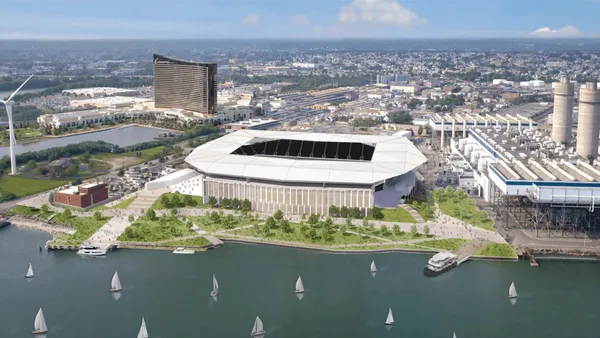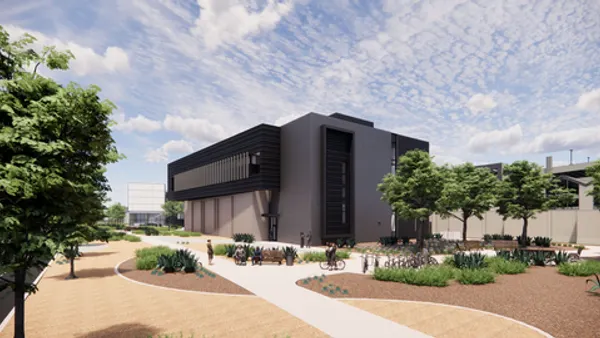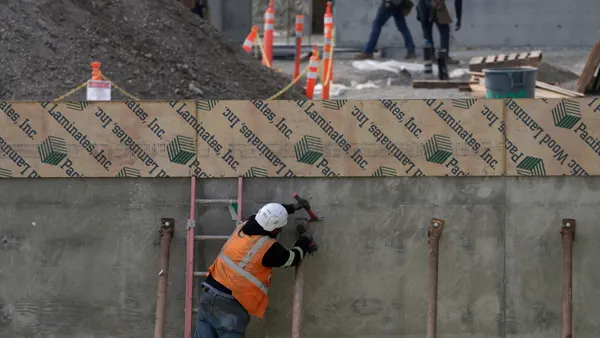Dive Brief:
- The U.S. Senate Environment and Public Works Committee heard testimony from Federal Bureau of Investigation and General Services Administration officials about a revised $3.3 billion plan for a new FBI headquarters in Washington, D.C., according to Architect.
- The proposal, according to the agencies' Revised Nationally-Focused Consolidation Plan, would see a new headquarters built on the site of the current FBI J. Edgar Hoover building, saving taxpayers the cost of a land purchase and other expenses related to developing a new parcel. The design of the $2.6 billion, 2.6 million-square-foot building would include state-of-the-art security systems, a health and fitness facility, upgraded technology, a visitor center and parking. The remainder of the funds would go toward fit-out costs ($923 million) and the swing space ($479 million) necessary while the building is under construction.
- The GSA gave several reasons for its shift from a standalone campus to a demolish-and-replace strategy, according to Federal News Radio, one of which is that transportation and other infrastructure is in place around the existing headquarters. The agency also said that the FBI expects fewer employees than it previously estimated to occupy the building. Some lawmakers were on board with the new proposal, but some questioned the decision and wanted to know what role President Donald Trump had in making such a significant change.
Dive Insight:
In July, the GSA announced that it was shelving the FBI headquarters project after a tussle with Congress over funding and after a GSA audit found that land swaps, the mechanism that was going to be used to secure a site for the new FBI headquarters, weren't such a great deal for taxpayers. The GSA had solicited requests for proposals from potential construction managers when it decided to pull the plug.
The Inspector General's critical analysis of the agency's swap practice also put an end to the GSA's search for a new Labor Department headquarters. Both the FBI and DOL buildings are said to be outdated and in disrepair.
Soon after the president's inauguration and before the GSA decided to put a halt to its site search, a report in the Washington Business Journal suggested that Trump could have a hand in future decisions around the project given his real estate experience.










